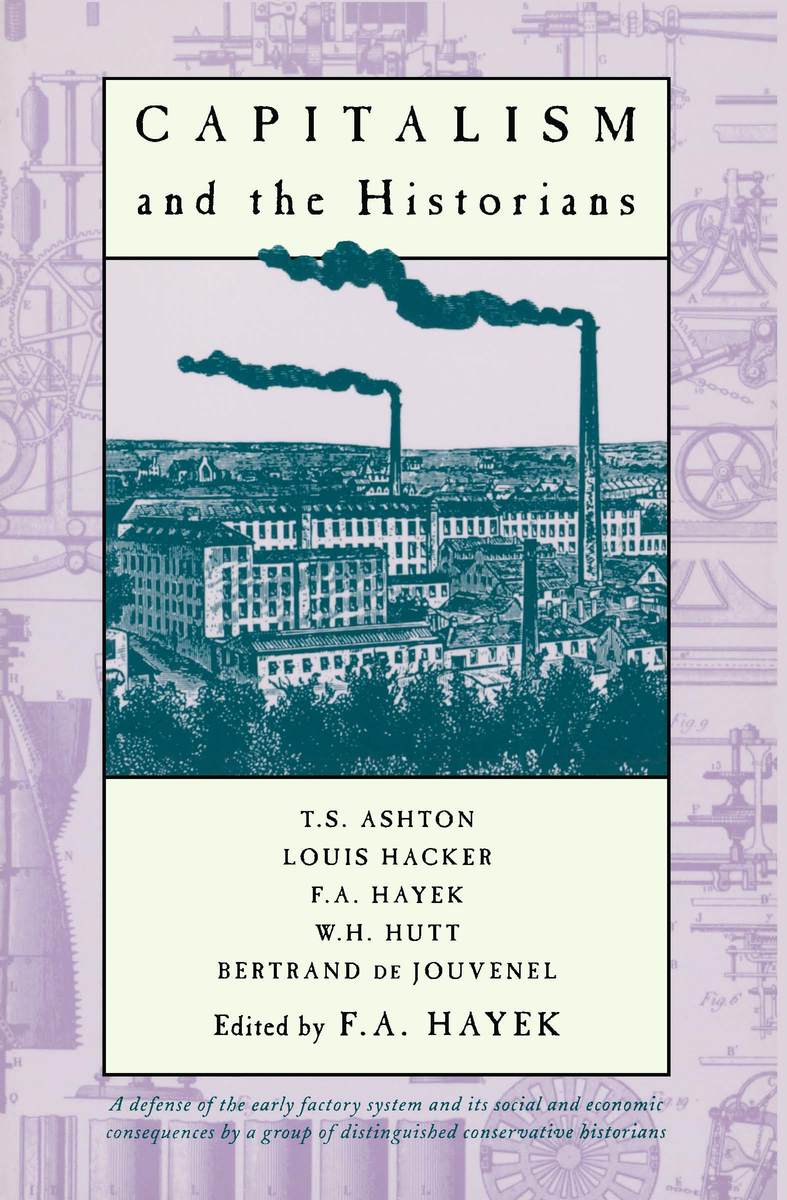Capitalism and the Historians
University of Chicago Press, 1963
Cloth: 978-0-226-32071-7 | Paper: 978-0-226-32072-4 | Electronic: 978-0-226-32113-4
DOI: 10.7208/chicago/9780226321134.001.0001
Cloth: 978-0-226-32071-7 | Paper: 978-0-226-32072-4 | Electronic: 978-0-226-32113-4
DOI: 10.7208/chicago/9780226321134.001.0001
ABOUT THIS BOOKAUTHOR BIOGRAPHYTABLE OF CONTENTS
ABOUT THIS BOOK
The views generally held about the rise of the factory system in Britain derive from highly distorted accounts of the social consequences of that system—so say the distinguished economic historians whose papers make up this book. The authors offer documentary evidence to support their conclusion that under capitalism the workers, despite long hours and other hardships of factory life, were better off financially, had more opportunities, and led a better life than had been the case before the Industrial Revolution.
AUTHOR BIOGRAPHY
F. A. Hayek (1899-1992), recipient of the Medal of Freedom in 1991 and co-winner of the Nobel Memorial Prize in Economics in 1974, was a pioneer in monetary theory and a leading proponent of classical liberalism in the twentieth century. He taught at the University of London, the University of Chicago, and the University of Freiburg.
TABLE OF CONTENTS
Introduction
History and Politics
1. The Treatment of Capitalism
2. The Anticapitalist Bias of American Historians
3. The Treatment of Capitalism
4. The Standard of Life of Workers in England, 1790–1830
5. The Factory System of the Early Nineteenth Century
